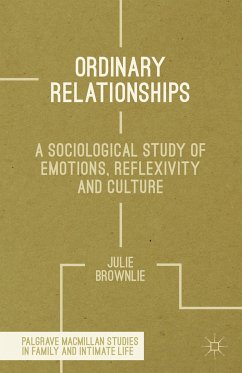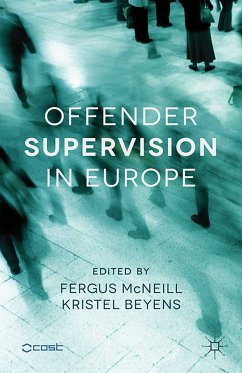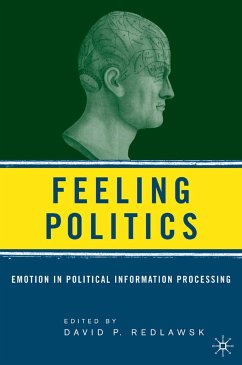
Emotional Literacy in Criminal Justice (eBook, PDF)
Professional Practice with Offenders
Versandkostenfrei!
Sofort per Download lieferbar
40,95 €
inkl. MwSt.
Weitere Ausgaben:

PAYBACK Punkte
20 °P sammeln!
Emotions remain largely invisible in the management of criminal justice practice. This book seeks to uncover some of the underground emotional work of practitioners and make visible the impact of both positive and negative emotions, which play a crucial role in practitioner-offender relationships. Exploring how practitioners understand, regulate and work with emotion, Knight argues that the 'soft skills' of emotion are more likely to achieve motivation and change in offenders than the 'hard' skills of punishment, monitoring and surveillance. The book examines some of the gendered implications...
Emotions remain largely invisible in the management of criminal justice practice. This book seeks to uncover some of the underground emotional work of practitioners and make visible the impact of both positive and negative emotions, which play a crucial role in practitioner-offender relationships.
Exploring how practitioners understand, regulate and work with emotion, Knight argues that the 'soft skills' of emotion are more likely to achieve motivation and change in offenders than the 'hard' skills of punishment, monitoring and surveillance. The book examines some of the gendered implications of this practice and develops an argument for the explicit building of emotional resources within organizations to sustain the development, enhancement and support of emotional literacy in the workforce.
Using practice examples, Knight reveals how practitioners can benefit from having an understanding of their own emotions and howthese can impact on their practice. This unique and accessible book will be a valuable resource to practitioners across the criminal justice sector including probation officers, youth justice workers, police and prison officers, social workers, policymakers and managers, as well as scholars working within criminology, criminal justice and probation.
Dieser Download kann aus rechtlichen Gründen nur mit Rechnungsadresse in A, B, BG, CY, CZ, D, DK, EW, E, FIN, F, GR, HR, H, IRL, I, LT, L, LR, M, NL, PL, P, R, S, SLO, SK ausgeliefert werden.












